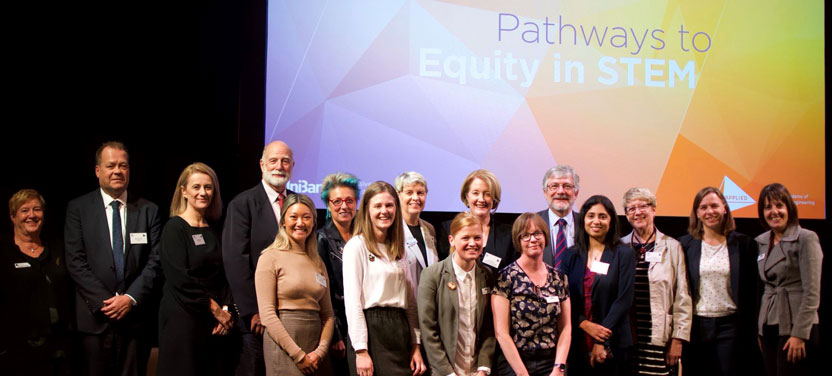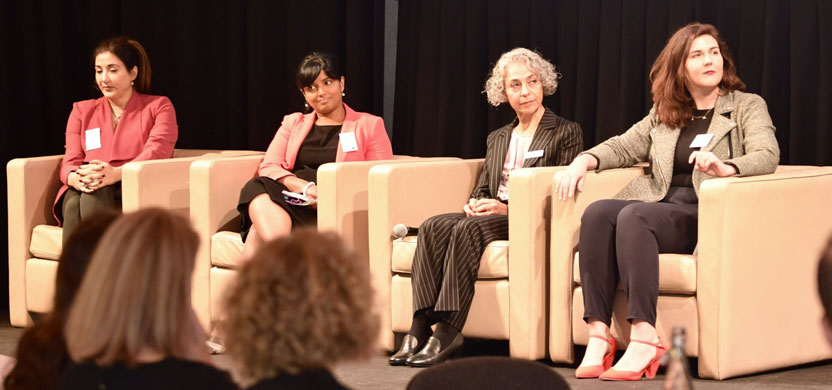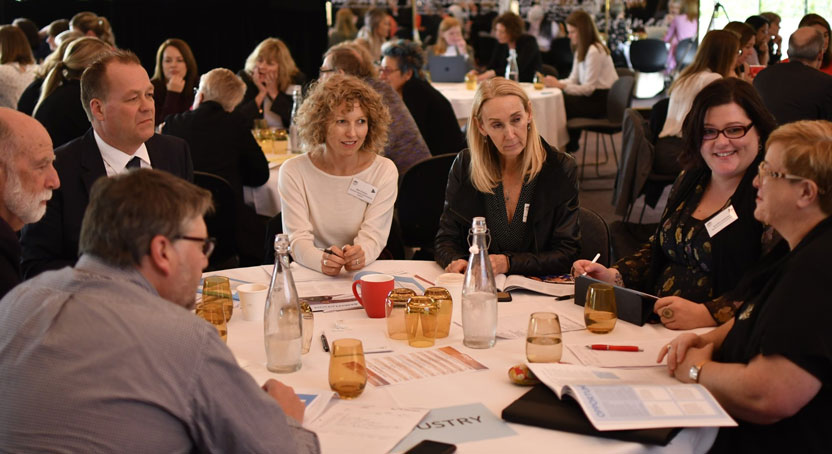
Pathways to Equity in STEM, proudly supported by Exclusive Presenting Partner UniBank, was the first implementation activity of the Women in STEM Decadal Plan held on 3 April 2019. The Australian Academy of Science and the Australian Academy of Technology and Engineering brought together leaders from across the STEM sector, providing opportunities to learn from each other and collaborate to define their strategy for implementing the decadal plan.
Professor Lisa Harvey-Smith, Australian Government Women in STEM Ambassador, presented the keynote address. She called for organisations to take action and write a formal organisational response to the Women in STEM Decadal Plan.
UniBank General Manager, Mike Lanzing said UniBank was very pleased to support such an important event.
‘UniBank is a proud supporter of the academies’ 10 year plan to encourage gender diversity in STEM. We believe cross-institutional partnerships are vital if we are going to increase the numbers of women choosing STEM careers. We stand with the academies and the action plan to reach gender equity across Australian business and academic community.’
The first session, learning from each other, provided an opportunity for organisations to share current strategies and programs they are working on the achieve gender equity in STEM, from education, academia and industry. Ms Suzy Urbaniak provided personal insight into the impact her real-world problem-solving STEAM teaching program, Centre of Resources Excellence (CoRE) has on retention of girls in STEM education. Efforts to support undergraduate and postgraduate women were shared by Associate Professor Maria Parappily from Flinders University and the STEM Women Branching Out program. Professor Virginia Kilborn from Swinburne University of Technology explained the impact the WATTLE Women in Leadership Program has had across the supporting universities in just six months. The efforts of the Australian Council of Engineering Deans to raise enrolment of women in engineering from 18% to 30% by 2030 was highlighted by Professor Robin King, while Ms Fiona Vines, Head of Diversity and Inclusion at BHP described the goal of BHP to achieve gender balance across the organisation by 2025, reporting that currently 39% of all employees work flexibly.

Opportunity two in the decadal plan highlights the need to prioritise evaluation and data collection so that we can understand what works in the gender equity space as we move forward. In session two, measuring impact, key players across the STEM sector presented their organisation’s role in data collection and offered perspectives on how we could move forward.
Ms Elyse Lane, Senior Research and Education Advisor, Workplace Gender Equality Agency, described that WGEA collects data from approximately 40% of the Australian workforce. Though not STEM specific they do have 5 years of data and publish an annual gender equality scorecard. All data is publicly accessible through the online WGEA Data Explorer.
Dr Wafa El Adhami, Executive Director, Science in Australia Gender Equity highlighted the challenges between organisation types and data collection methods. Mentioning that when collecting data, we need to take a harmonised approach and develop a framework that utilises existing information rather than creating something new. She also identified the challenge of measuring change in culture.
Ms Somali Cerise, Program Director, Male Champions of Change (MCC) identified two lessons through her work with MCC organisations. The first is the need to listen and collaborate with individuals: experiences and personal stories drive actions as much as the data. Ms Cerise stressed the need to combine the head and the heart. Secondly an organisation shouldn’t underestimate the power of qualitative data to understand culture.
Finally, Ms Lisa Annese, Chief Executive Officer, Diversity Council Australia, highlighted the need to take an intersectional approach, ensuring that your employee surveys are collecting the nuances within demographic groups. It is important to increase our understanding of how people present to the world and how others interpret and see them.

In the final session all delegates participated in either industry, education or research sector discussions on defining next steps. Each sector selected a representative to share their findings with the group. Representing the research sector Dr Emma Burrows from Florey Institute highlighted that a serious effort needs to be made to ensure all leaders are involved in implementation. Ms Meg Brighton from ACT Education Directorate focused on the need for equity to be at the core of education and that state and federal partnerships are necessary for collecting formative data. Industry was represented by Ms Rachel Nichols from Arup who mentioned that the industry needs to recognise the positive benefits of diverse workforce and work to fix their own organisation before sharing with others.
The main outcomes from Pathways to Equity in STEM summarised in 6 key points:
Subscribe to receive updates on the implementation process, including opportunities to contribute.
The Academy thanks Unibank, our Exclusive Presenting Partner at this event.

© 2025 Australian Academy of Science